Search Results
Showing results 81 to 100 of 171
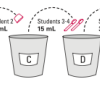
A System of Transport
Source Institutions
In this activity about the human heart (on page 5 of the PDF), learners work in teams to simulate the volume of blood moved through the circulatory system by transferring liquid into--and through--a s

Zoo Calendar
Source Institutions
Use the Zoo Calendar (page 1 of PDF) to involve learners in interdisciplinary, whole language, and writing activities about ecological concepts.
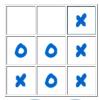
Tic-Tac-Toe
Source Institutions
In this online version of the classic paper and pencil game, learners practice looking ahead to anticipate an opponent's move.
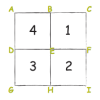
Solving Playground Network Problems
Source Institutions
In this activity, learners use cooperation and logical thinking to find solutions to network problems on the playground.
Piece It Together: Puzzle Hunt
Source Institutions
In this activity, learners follow clues to find five puzzle pieces, then assemble them. This activity works well with a whole group, individuals, or families.
Mystery Jars: Estimate Contents
Source Institutions
This activity puts a mathematical twist on the familiar “guessing jar.” No guesses allowed, estimates only.
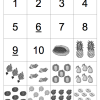
Memory Match
Source Institutions
In this classic memory game (on pages 37-45 of PDF), learners turn over tiles to reveal images on the back.
Narrow It Down: Asking Yes-No Questions
Source Institutions
In this activity, the learner asks yes-no questions to identify a secret object (similar to Twenty Questions). This game is easy to adapt for different ages and different kinds of contexts.

Sustainable Fishing
Source Institutions
In this activity, learners use a model for how fishing affects marine life populations, and will construct explanations for one of the reasons why fish populations are declining.
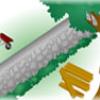
Simple Machines
Source Institutions
This is an online activity about simple machines. Learners will try their hand at putting these amazing devices to work. They will use several simple machines to help "build" a tree house.

Slush Rush
Source Institutions
In this online game, learners run an outer space drink stand and thirsty alien customers are on the way.

I Don't Think So!
Source Institutions
In this math activity, learners explore probability as they play a game. Learners will categorize everyday events as either impossible, possible or certain.

Hidden Rainbow
Source Institutions
In this math puzzle, one player hides a rainbow of four colors while another player tries to guess the hidden rainbow colors in the correct order.

Fly on the Ceiling
Source Institutions
In this math lesson, learners play two different games to help them understand coordinates. First, learners read the book, "The Fly on the Ceiling," by Julie Glass.
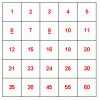
Factors and Multiples Puzzle
Source Institutions
This puzzle provides an interesting context which challenges learners to apply their knowledge of the properties of numbers.
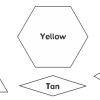
Fantastic Fractions
Source Institutions
In this math lesson, learners compare pattern blocks to visually understand halves, thirds, and sixths.

Toe-Tac-Tic
Source Institutions
In this activity, learners play a game similar to Tic-Tac-Toe. In this version, learners try NOT to get three-in-a-row. The player who gets three-in-a-row first loses!
Secret Message
Source Institutions
In this fun math activity (page 1 of the pdf), learners exercise the creative part of their brain by trying to describe a number without mentioning the actual number (for instance, the number 12 could
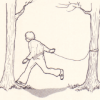
Tree Tally
Source Institutions
In this outdoor activity and fun race, learners first find the most common type of tree in a forest site.

Katta Villayatu
Source Institutions
In this activity, learners play a game from India similar to Tic-Tac-Toe. Players take turns placing coins on the game board and sliding the coins along the spaces.
